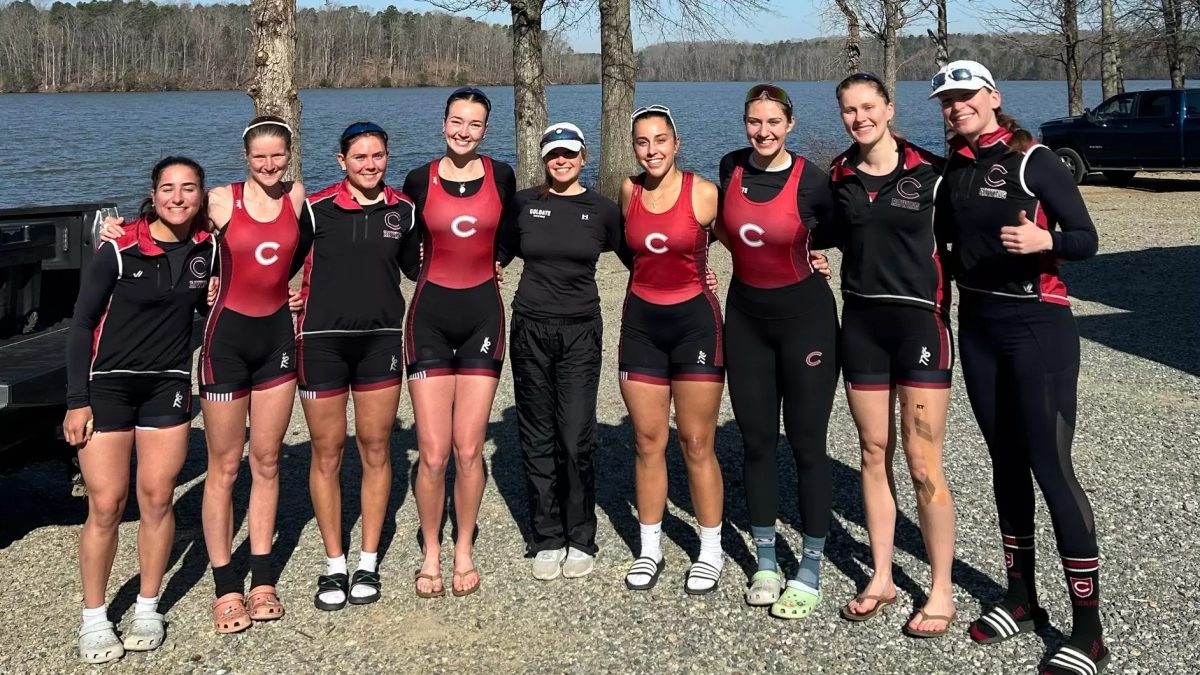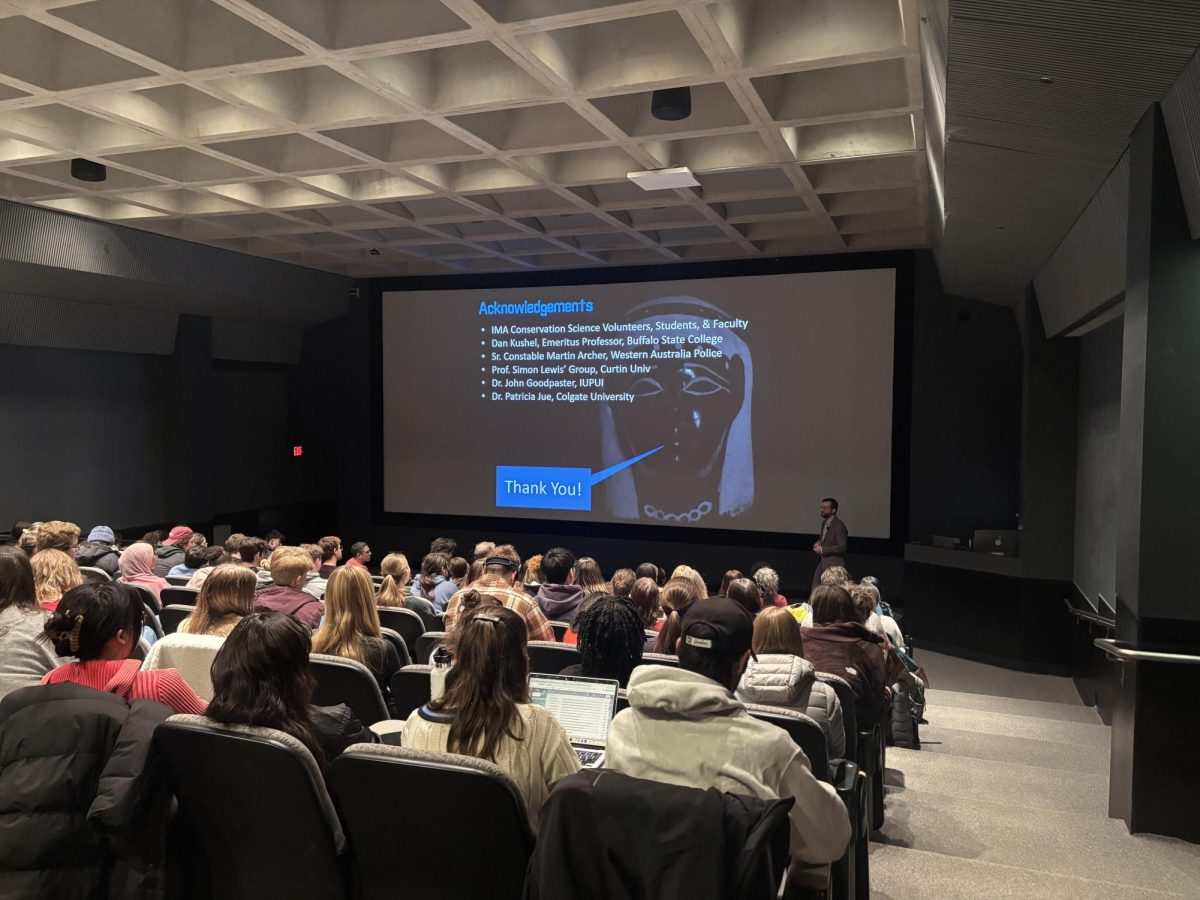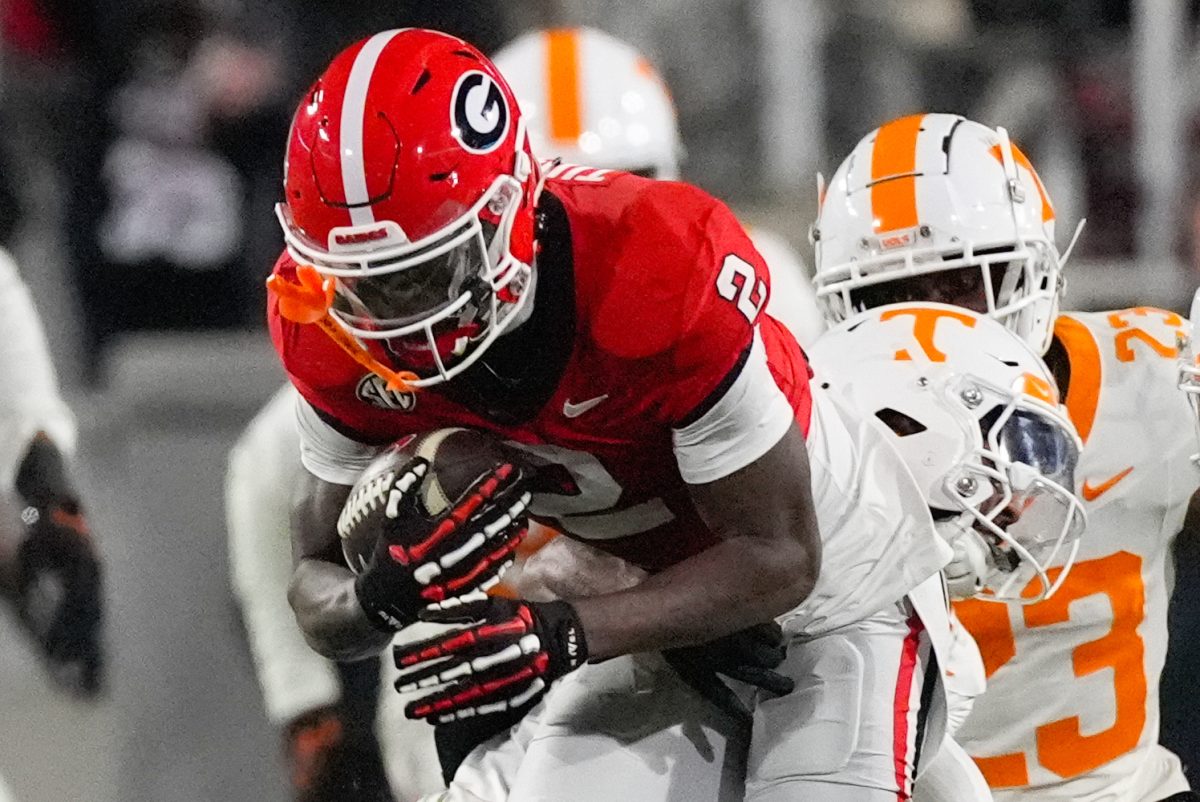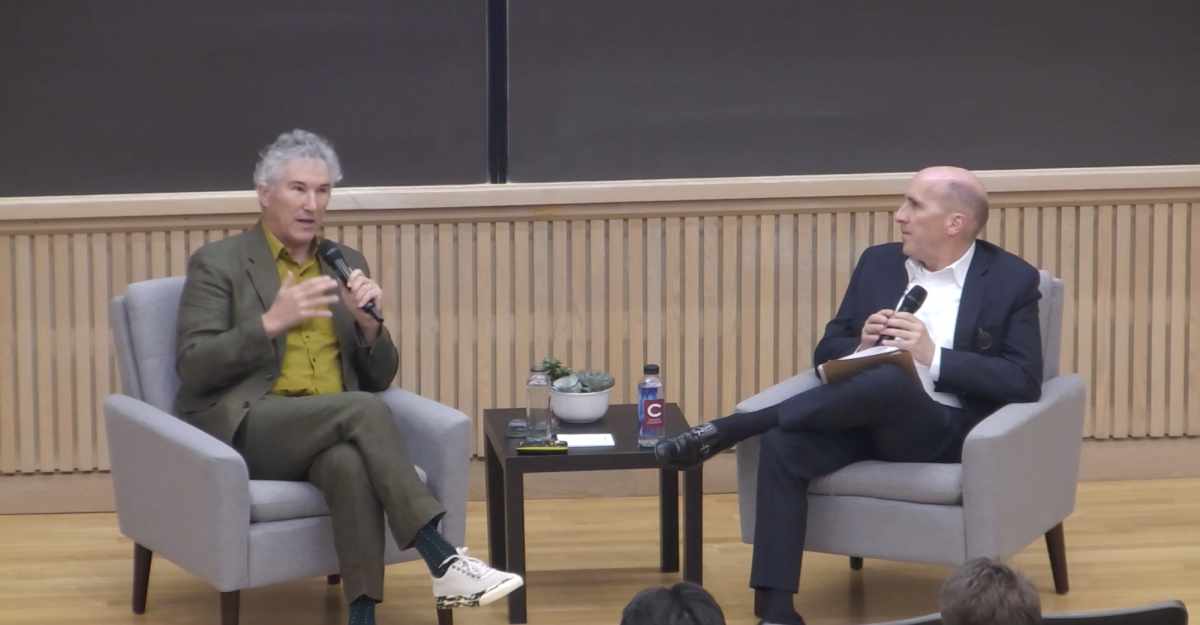As part of the Office of LGBTQ+ Initiatives’ annual Queer Fest, the The Cornelius (Laddie) Milmoe ’30 Endowment, with contributions from the LGBTQ studies program, the women’s, gender and sexuality studies program and the department of educational studies, sponsored award-winning journalist Nico Lang’s visit to Colgate University on Tuesday, March 25. Lang, who is non-binary, participated in a brown-bag discussion on their journalistic work earlier in the day and returned to give the Queer Fest keynote address and present their new book, “American Teenager: How Trans Kids Are Surviving Hate and Finding Joy in a Turbulent Era.”
Lyosha Gorshkov, director of the Office of LGBTQ+ Initiatives, moderated Lang’s presentation, introducing Lang as a long-time friend and an established queer journalist. Lang’s professional career in journalism began in 2016, and their work has been featured in publications such as Rolling Stone, The New York Times, Out and Esquire.
According to Lang, “American Teenager” was in part motivated by decreased support for transgender Americans, culminating in recent actions from the federal government during the second Trump administration. As the political climate shifted in the face of Trump’s second term, Lang said, queer journalism as an industry became more precarious and less interested in reporting hard news relevant to LGBTQ+ people. With their book, Lang sought to allow queer people to tell their own stories in opposition to widespread restriction.
“If you look across the country, we are trying to make the lives of trans people smaller, to restrict them from moving through the world safely and easily,” Lang said. “In spending time with families, I really wanted people to get to know them, to see the world through their eyes.”
In “American Teenager,” Lang features the stories of seven queer kids from seven different states: South Dakota, Alabama, West Virginia, Texas, Illinois, Florida and California. The information for the book was collected by interviewing and establishing relationships with these kids and their families. Lang sees the mission of telling these stories as an unfortunate but fruitful one.
“This book should have never had to be written,” Lang said. “I wanted trans kids to say all the things they don’t often get to say. I wanted to give them the agency that America doesn’t give them.”
Additionally, Lang said that one of their motivating principles in crafting the book was to offer their subjects a forum for discussing their experience without misrepresenting or universalizing their story. Lang said their goal was to tell seven distinctly different stories, each speaking only for its subject.
To do this, Lang attempted to capture the things that made each person unique. They said that, in their own experience, much of the coverage queer issues receive is negative, focused on the ways in which LGBTQ+ people are restricted or not allowed to live like other people. However, Lang said that the more important thing to emphasize in “American Teenager” was how transgender kids are discovering how to be themselves in an unwelcoming social landscape. They also wanted to show the mundane moments in transgender kids’ lives, and let them just be people.
“I realized through this book that I’ve never been fighting to live the same way as other people,” Lang said. “The kids in this book are fighting to live life on their own terms.”
In a question and answer session, Lang said that these terms were different for each of the seven kids. But most, they said, found solace in safe spaces and unique interests. Lang wanted the unique ways that transgender kids cope to stand out for the audience, choosing to take a lighter tone to the subject matter.
“I wanted you to really engage with the text and learn from it. And the way that I did that was to give it lightness and fun,” Lang said. “I wanted it to feel connected to the kind of humanity that everyone else has access to, but that we’ve denied to trans people.”
In conveying lightness and joy, Lang said that their aim was not to resolve the issues of the current day but to show how transgender people are living proudly despite repression. This aspect of Lang’s work resonated for Gorshkov, who said that the stories of the transgender kids in “American Teenager” speak to a resilience that anyone can draw inspiration from.
“One of the moments that resonated with me most was [Lang’s] reflection on how it is important to find joy even when there seems to be no hope. The journey of [Lang’s] interviewees is a lesson for all of us — how to remain being yourself despite the challenges from the outside world,” Gorshkov said.
Still, Lang said that their project is not entirely isolated from the pressing issues facing transgender people in America. While Lang admitted that they envied the availability of resources for LGBTQ+ young people and the optimism and joy of the subject of “American Teenager,” they aren’t very hopeful about the future for queer people in America.
“For as hopeful as the kids are, I think I’m still finding my way back to hope,” Lang said
Lang’s keynote address kicked off a week-long event series focused on discussing queer issues, hosting social and informational events and building support networks in the Colgate community.
As part of Queer Fest, a Pride Walk was held on March 26 with the Colgate Pep Band. Sophomore Will Koszegi of the Colgate Pep Band spoke about the group’s contribution to the annual Queer Fest event.
“I’ll speak a little for the whole band, but we always have a great time at the Pride Walk. It’s an amazing way for us to end our season,” Koszegi said.
Events also included a Pre-Pride Walk Art Session presented by LGBTQ+ Initiatives and Colgate Disability Activists and an Open Mic presented by Lambda and Masque & Triangle.
Gorshkov said that this diverse programming is for any community members looking to broaden their experience and understanding of those around them.
“I do hope that these programs would help people to learn more about their classmates, neighbors, peers, friends and gain more skills in building a network of mutual support. Not to mention to open more opportunities to stay united,” Gorshkov said.













